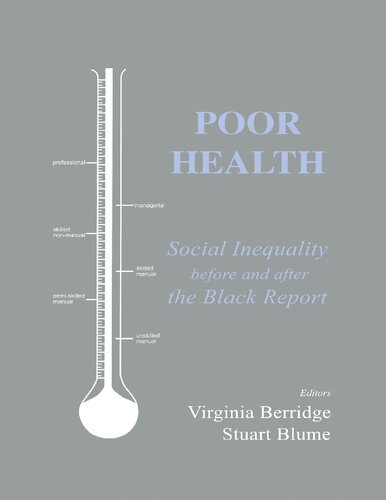

Most ebook files are in PDF format, so you can easily read them using various software such as Foxit Reader or directly on the Google Chrome browser.
Some ebook files are released by publishers in other formats such as .awz, .mobi, .epub, .fb2, etc. You may need to install specific software to read these formats on mobile/PC, such as Calibre.
Please read the tutorial at this link: https://ebookbell.com/faq
We offer FREE conversion to the popular formats you request; however, this may take some time. Therefore, right after payment, please email us, and we will try to provide the service as quickly as possible.
For some exceptional file formats or broken links (if any), please refrain from opening any disputes. Instead, email us first, and we will try to assist within a maximum of 6 hours.
EbookBell Team

4.3
68 reviewsIn the 1980s the issue of inequalities and health was largely off the political agenda for the Conservative government. This lack of political attention was still apparent in the early 1990s. When the government White Paper on The Health of the Nation was published in 1992, its target-setting for health was welcomed but also criticised for avoiding contentious issues such as unemployment and health. These were perhaps less amenable to targets. Inequalities started to make a gradual reappearance in policy-making circles in the 1990s, initially using different terminology. The phrase 'variations in health' was a softer and less challenging way of reintroducing the topic. It was unclear who might carry this tentative resurgence forward as a campaigning issue. Bartley argued, in her study of unemployment and health, that public health doctors, who had displayed an earlier interest in the issue, had dropped it after their incorporation in the reformed health service machinery after 1974. 1 The election of a Labour government in 1997 saw inequalities come fully 'out of the closet'. The Acheson enquiry into inequalities in 1998 and the subsequent White Paper, together with the establishment of a 'social exclusion unit' (another redefined term) in Whitehall, saw inequalities back on the policy agenda. This volume is to some extent the product of the revived interest in inequalities.